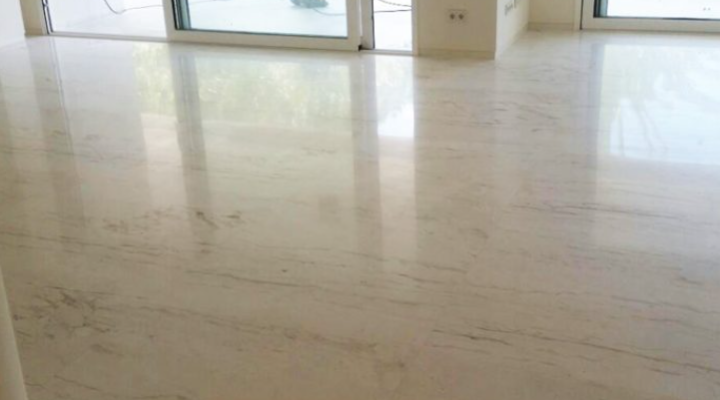
Marble, with its timeless beauty and natural elegance, is a popular choice for various surfaces, including countertops, floors, and decorative accents. To maintain and enhance the lustrous appearance of marble, polishing becomes an essential part of the maintenance routine. However, with a plethora of polishing products available, selecting the best polish for marble can be a daunting task. In this exploration, we will delve into the factors to consider and popular options to help guide the choice of the best marble floor polishing.
Understanding Marble Characteristics
Before diving into the world of marble polish, it is essential to understand the characteristics of marble. Marble is a porous and relatively soft natural stone composed of calcium carbonate. Its susceptibility to scratches, stains, and etching requires careful maintenance, and choosing a suitable marble polish crucial for preserving its beauty without causing damage.
Types of Marble Polish
There are various types of marble polishes available in the market, each catering to specific needs and preferences. The two main categories of marble polish are topical and penetrating.
Topical Polish: This type of polish forms a protective layer on the surface of the marble. It can enhance shine, provide a protective barrier against stains, and fill in minor imperfections. Topical polishes are often used for regular maintenance and to achieve a glossy finish.
Penetrating Polish: Penetrating polishes are designed to be absorbed by the marble, enhancing its natural colors and veining. These polishes do not create a surface film, allowing the marble to breathe. They are particularly effective for addressing minor scratches and enhancing the stone’s appearance without altering its texture.
Water-Based vs. Solvent-Based Polishes
Marble polishes come in water-based and solvent-based formulations, each with its own set of advantages and considerations.
Water-Based Polish: Water-based polishes are generally more eco-friendly and have a milder scent compared to their solvent-based counterparts. They are suitable for regular maintenance and provide a subtle shine without exposing users to strong fumes.
Solvent-Based Polish: Solvent-based polishes may offer a higher level of gloss and durability. However, they often emit stronger fumes and may require proper ventilation during application. Solvent-based polishes are commonly used for achieving a more dramatic shine and addressing deeper imperfections.
Non-Abrasive Formulations
Choosing a non-abrasive marble polish is crucial to prevent scratches and damage to the delicate surface of the stone. Abrasive polishes can compromise the integrity of marble and lead to the need for professional restoration. Non-abrasive formulations are gentle on the surface while effectively enhancing the stone’s appearance.
pH-Balanced Formulas
Marble is sensitive to acidic substances, and using a pH-balanced marble polish helps maintain the stone’s integrity. Acidic substances can cause etching, dullness, and discoloration on marble surfaces. Opting for a pH-balanced polish ensures compatibility with the natural composition of the stone and minimizes the risk of damage.
Ease of Application
The best marble polish should be easy to apply, ensuring a smooth and hassle-free process. Whether in liquid, paste, or spray form, the polish should provide even coverage and allow for straightforward buffing or wiping. User-friendly products contribute to a positive experience and encourage regular maintenance.
Compatibility with Sealers
For marble surfaces that have been sealed for added protection, it is essential to choose a polish that is compatible with the sealer. Some polishes may contain ingredients that can compromise the effectiveness of the sealer or create a hazy appearance. Opting for a polish specifically designed for use with sealed marble ensures optimal results.
Long-Lasting Shine
The longevity of the shine achieved with a marble polish is a critical consideration. While some polishes provide a temporary boost in shine, others are formulated to offer a longer-lasting luster. Choosing a polish with durable results reduces the frequency of application, saving time and effort in the long run.
Brand Reputation and Reviews
Exploring the reputation of a brand and reading user reviews can provide valuable insights into the effectiveness of a particular marble polish. Recommendations from professionals in the stone care industry and positive reviews from users who have similar marble surfaces can help inform the decision-making process.
Environmental Impact
For those who prioritize environmentally friendly products, considering the environmental impact of marble polish is important. Some polishes are formulated with sustainability in mind, featuring biodegradable ingredients and eco-friendly packaging.
Conclusion
Selecting the best polish for marble surfaces involves a thoughtful evaluation of the stone’s characteristics, the type of polish needed, and individual preferences. Water-based or solvent-based, topical or penetrating, non-abrasive, and pH-balanced formulations all contribute to a successful polishing experience. The chosen polish should align with the desired level of shine, ease of application, compatibility with sealers, and environmental considerations. By navigating the diverse options available and making an informed decision, enthusiasts and caretakers of marble surfaces can enjoy the enduring beauty of this timeless natural stone.
Leave a Reply